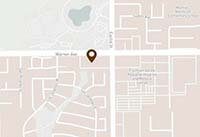To Buy Singulair Online Visit Our Pharmacy ↓
 **singulair and Children: Safety and Efficacy**
**singulair and Children: Safety and Efficacy**
Understanding Singulair: What It Is and How It Works
Singulair, generically known as montelukast, is a medication primarily used to manage asthma and allergic rhinitis. This oral medication acts as a leukotriene receptor antagonist, which means it blocks substances in the body called leukotrienes that cause inflammation and bronchoconstriction. By inhibiting these chemicals, Singulair helps to reduce airway swelling and ease breathing, making it an essential tool for many pediatric patients dealing with respiratory issues.
For children, Singulair is often prescribed to alleviate symptoms related to seasonal allergies, persistent asthma, and exercise-induced bronchoconstriction. The medication is taken once daily, usually in the evening, aligning with the natural cycles of respiratory inflammation. Its once-daily dosing simplifies adherence for busy families, providing convenience alongside effectiveness.
It’s important to note that while Singulair helps many children breathe easier, its mechanism also enhances overall well-being by allowing for more enjoyable outdoor activities and better sleep quality. When children can breathe freely, they can engage in play without interruption, fostering both physical health and emotional resilience.
Below is a brief comparison of key features concerning Singulair:
| Feature | Details |
|---|---|
| Generic Name | Montelukast |
| Drug Class | Leukotriene Receptor Antagonist |
| Administration | Once Daily Oral Dose |
| Common Uses | Asthma and Allergic Rhinitis |
Evaluating the Safety Profile of Singulair in Children

When it comes to prescribing singulair for children, understanding its safety profile is essential for parents and healthcare providers alike. Clinical research has shown that singulair, a leukotriene receptor antagonist, is generally well-tolerated in pediatric populations, providing relief for conditions like asthma and allergic rhinitis.
Moreover, extensive studies have been conducted to ensure its efficacy while monitoring potential risks. The FDA has approved singulair for children as young as six months, reflecting confidence in its safety when used as directed.
However, like any medication, singulair can lead to unexpected reactions in some children. It’s crucial for caregivers to be vigilant and report any unusual behaviors or health changes to their pediatrician. Ongoing communication with healthcare professionals can help mitigate any safety concerns.
Ultimately, a balanced perspective on singulair’s safety helps to foster informed decisions. With careful consideration and appropriate monitoring, parents can feel more secure in their choices regarding this commonly prescribed medication for children.
Common Conditions Treated with Singulair in Pediatrics
Singulair is commonly prescribed for children facing respiratory challenges, particularly asthma and allergic rhinitis. By blocking leukotrienes, a substance in the body that leads to inflammation and mucus production, this medication helps manage symptoms effectively. Parents often find relief in knowing that Singulair can improve lung function and reduce the frequency of asthma attacks, allowing their children to participate in activities without restriction.
Additionally, Singulair has shown effectiveness in treating exercise-induced bronchoconstriction, a condition that can affect children engaged in sports. Many young athletes experience difficulty breathing during or after vigorous activity, and this medication can significantly reduce those episodes. Its ability to provide continuous relief makes it a trusted option among pediatricians.
Parents may also notice positive effects on their children's quality of life when using Singulair. Improved breathing and reduced allergy symptoms can lead to better sleep and enhanced overall wellbeing. In many cases, children are able to enjoy outdoor play and attend school without the burden of their respiratory conditions, highlighting the importance of treating these issues early and effectively.
Potential Side Effects: What Parents Should Know

When considering Singulair for children, parents should be aware of the potential side effects that may accompany its use. While many children respond positively to this medication, a minority may experience adverse reactions. These can range from mild symptoms like headaches and stomach pain to more serious issues, such as mood changes or behavioral concerns. It’s crucial for caregivers to monitor their child closely during treatment and report any unusual behavior to their healthcare provider.
In some cases, potentially severe effects can emerge, leading to anxiety and sleep disturbances. Understanding these risks can empower parents to engage in open conversations with their child's doctor. This collaboration ensures that their child’s treatment plan remains effective while minimizing risks.
Moreover, parents should stay informed about the ongoing discussions surrounding Singulair to better assess its appropriateness for their child. Being proactive about side effects enables families to make informed choices about their child's health. Ultimately, open dialogue between parents and healthcare professionals is key to navigating the medication landscape safely.
Success Stories: Efficacy of Singulair in Young Patients
Numerous families have shared their positive experiences with Singulair, highlighting its transformative impact on their children's lives. One mother noted that her son, who struggled with asthma, finally enjoyed playing soccer without the constant fear of wheezing and shortness of breath. This renewed confidence not only enriched his social life but also helped improve his physical health.
Another family shared how their daughter's allergic rhinitis symptoms drastically decreased after starting Singulair. With fewer bouts of sneezing and nasal congestion, she could focus on her studies and engage in her favorite extracurricular activities. These testimonies emphasize how Singulair can significantly enhance the quality of life for young patients facing respiratory challenges.
| Condition Treated | Positive Outcome | |-------------------|------------------------| | Asthma | Increased physical activity and confidence | | Allergic Rhinitis | Improved concentration and participation |
Through these success stories, it becomes clear that Singulair is more than just a medication; it's a catalyst for life-changing experiences for children, allowing them to thrive despite their conditions. Parents expressing gratitude often note that the benefits extend beyond health, fostering emotional well-being and a normal childhood experience.
Expert Opinions: Guidance from Pediatricians and Allergists
When considering Singulair for pediatric patients, expert guidance emphasizes the importance of individualized treatment plans. Pediatricians and allergists often stress that while Singulair can be beneficial, it should be used alongside other therapeutic options tailored to a child's specific condition and response. Understanding a child's particular symptoms and health history is crucial, enabling healthcare providers to make informed decisions that prioritize safety and efficacy.
Experts also highlight the value of monitoring children closely after initiating treatment with Singulair. This proactive approach allows for adjustments in dosage or changes in medication if adverse effects arise. Ongoing communication between parents and healthcare providers helps ensure that treatment remains effective and child-centric, ultimately fostering a collaborative effort in managing allergic or asthmatic conditions.
Additionally, many specialists advocate for education on the use of Singulair, encouraging parents to engage actively in their child's treatment journey. By understanding the medication's purpose, benefits, and potential risks, families can make well-informed choices and establish a supportive environment that empowers their children to achieve better health outcomes.





